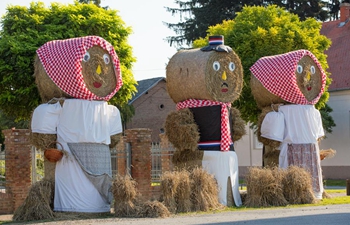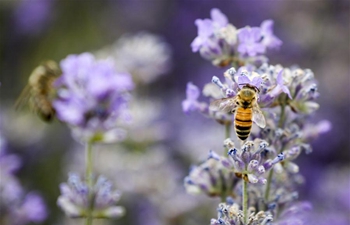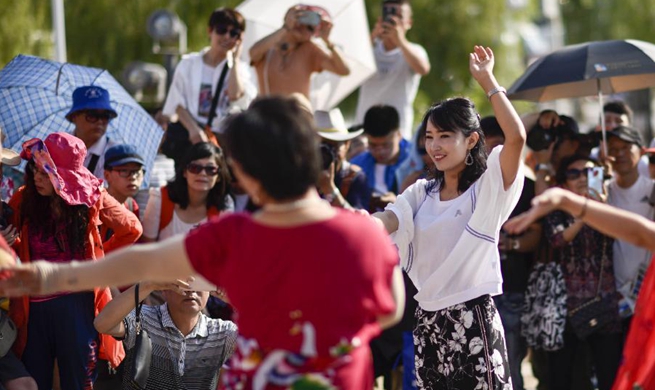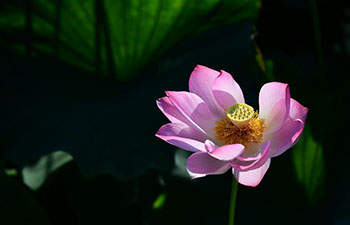ZHENGZHOU, July 15 (Xinhua) -- Since the beginning of summer, domestic tourists can sometimes find themselves greatly outnumbered by foreign visitors clad in Shaolin-logo T-shirts or monk uniforms in front of a cluster of elegantly painted wooden houses situated at the foot of Song Mountain which is known as the fabled home of Kung Fu.
It is estimated that every year, tens of thousands foreign martial art aficionados make pilgrimages to Shaolin Temple, the most sought-after attraction for the growing legions of Kung Fu fans across the globe, seeking to experience the authentic Shaolin culture and hone their skills in the martial arts.
In lieu of the serenity and solemnity many have come to expect at Buddhist temples, this ancient institution often seems to bask in the atmosphere of jubilation and give off a cosmopolitan vibe with groups of visiting foreign practitioners putting on displays of martial routines at the invitation of the temple.
On Saturday evening, more than 120 Kung Fu fans from 20 countries and regions gathered in the sacred meditation hall and put on a diverse selection of performances to celebrate their Shaolin roots in the presence of the abbot Shi Yongxin.
Apart from showcasing traditional martial arts prowess through punching, kicking, cudgel bashing and tumbling on the stage, performers from Africa, Europe, and America pulled out all the stops to integrate the elements of their own cultures into Shaolin Kung Fu.
The most mesmerizing segments of the evening gala included a group of grey-robed Africans singing and dancing to the beats of the djembe, American students' stunning display of acrobatics, athleticism, and agility, and a musical about seeking the truth of Shaolin culture in the birthplace of Kung Fu put on by a group of Russians. The zealous audience went wild with most rising to their feet and in thundering applause.
This celebratory event is a microcosm of what Shaolin Temple is hoping to achieve on the global stage in the future and a part of its attempt to broaden its appeal to foreign audiences.
Shi said that Shaolin Temple has been striving to transform Shaolin culture into a lifestyle and make it more integral to people's everyday lives through cultural exchange programs connecting with people from all parts of the world. He said he also hopes that the Shaolin culture can open a gateway for people to better understand Chinese culture.
With its own unique cultural appeal, Shaolin Temple has established more than 40 cultural institutions overseas with more than 300 Shaolin practitioners stationed abroad and teaching martial art to locals.

















